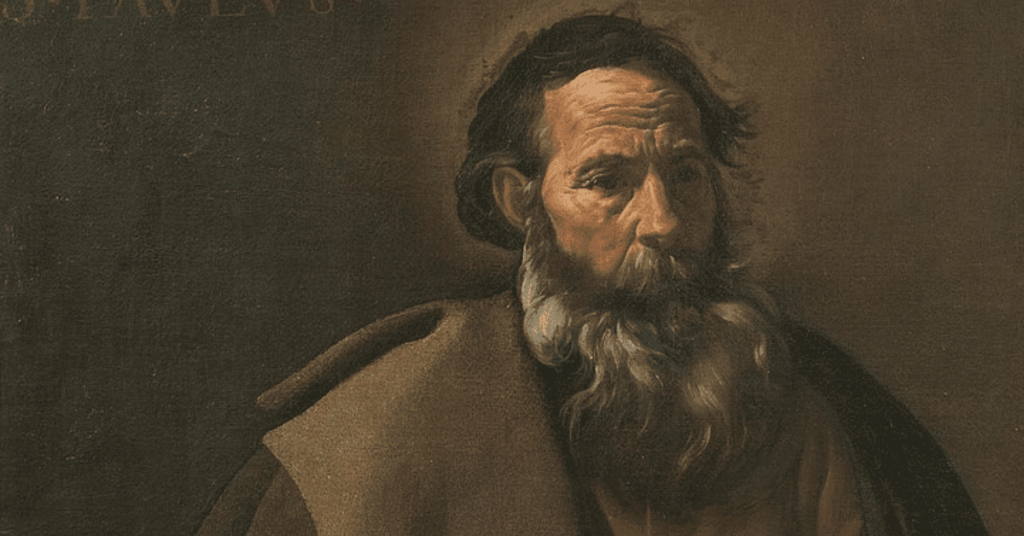Paul, the author of much of the New Testament, and arguably the second most influential figure in Christianity after Jesus, had a habit of introducing himself as, “an apostle of Jesus Christ by the will of God.” That quote is from 1 Corinthians but you’ll find similar ones in his other letters. At first glance, it reads a little like spiritual bravado or badge-showing. I’m going to be talking to you sternly and with authority so it’s important you know that I’m not some oaf, it’s God that has qualified me, so listen. But, what if his insistence on writing the words “an apostle […] by the will of God” wasn’t about proving his authority or following a form? What if it was a desperately needed (and prayed over) self-reminder of his ultimate identity?
Paul didn’t know Jesus like Peter, John, or the others. He never touched him or heard how he pronounced “follow.” Paul is aware of this limitation; he tells the Corinthians that he was an apostle but one “abnormally born.” This may have gotten to him, the way missed opportunities and insecurities can tap you on the shoulder. But if this wasn’t a source of pain, there were plenty of others. Prison, the desertion of friends and associates, beatings, and more misunderstandings than could be remembered. Once he escaped a city by being lowered over a wall in a basket. Years later he’d spend three nights floating in the open sea. At least once, this confluence of pains led him to wonder if his life was even worth living (2 Corinthians 1:8).
The last letter in the canon attributed to Paul was written to his young friend, Timothy. As the letter ends, his loneliness leaks out like rain from a cloud. Everyone’s left me. I’m here in prison. Would you visit soon? Please. Bring a coat, ‘cause I’m cold. Please bring my writings because I feel the purpose of my life slipping away. Come.
We might imagine him sitting on a chair, a lit candle bullied by the gusts that slip through the opening of his tent. Another day’s hardships cycle through his thoughts. He puts his pen to the papyrus then brings it back. He sighs.
It doesn’t matter how many times I’ve been left by friends, dragged outside the city gates and told to never come back. That doesn’t determine your sense of me. Neither my failing eyesight nor this lingering thorny pain add or take from that.
He breathes deeply.
I am an apostle. There’s no undoing that because God has done it. These words–make them clear, fill and haunt them–these otherwise hollow, anemic words. Remind me, even a bit, of the thing you and I know to be true.
If this is half-right, we all can relate. We all stagger into a third or so of our days accused by various mirrors and yesterday’s mistakes. We are all regularly convinced we’re two-thirds fraud or one-fifth wimp. We all ache for an assurance stronger than our dim reflection. These days, these too frequently tear-damp, flustering days, we need what I imagine Paul needed, the faith to believe what God believes about us. We need the courage, amidst all that could be conjured to the contrary, to embrace our calling as God’s own beloved children.


lit